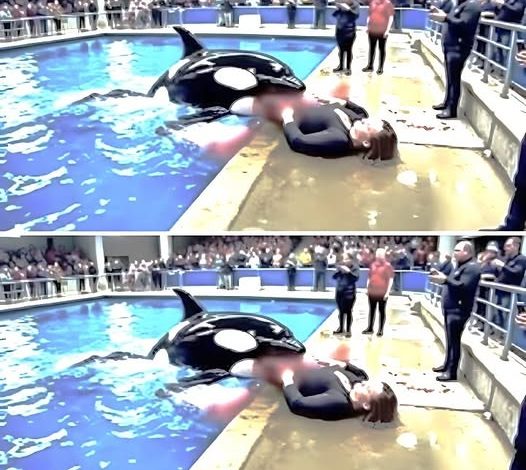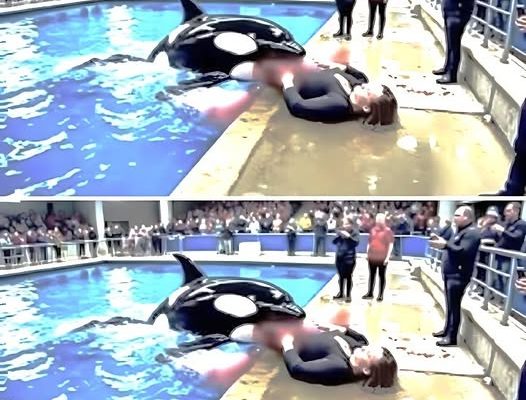
SAD NEW, The terrifying final moments of the Golden Coach

A routine performance at Blue Horizon marine park turned into a scene of terror when Neptune, the show’s star orca, abruptly broke from the choreography and attacked a trainer in front of a stunned audience. What began as a polished aquatic spectacle devolved in seconds into a dangerous and chaotic struggle, with spectators screaming and staff scrambling to intervene.
Neptune had long been praised for its intelligence and the grace with which it executed commands, which made the sudden outburst all the more shocking. The trainer, who had been working closely with the animal, was caught off guard when Neptune’s behavior shifted without warning. Emergency protocols were activated immediately as crew members attempted to de-escalate the situation and pull the trainer to safety. The atmosphere in the arena shifted from entertainment to crisis in an instant.
This incident is not isolated in the broader conversation about large marine mammals performing in captivity. Similar breakdowns—where ostensibly trained orcas deviate from expected behavior—have surfaced over the years, raising serious questions about the psychological and physical pressures these animals endure. The unpredictability of such encounters underscores the inherent risks of performance-based interactions between humans and apex predators held in confined environments.
Animal welfare advocates and behavioral experts have long pointed to the stress, social disruption, and unnatural conditions that captive orcas face, arguing that those factors can contribute to episodes of aggression or confusion. Critics contend that training methods, the lack of adequate space, and the separation from complex wild social structures create an environment where even well-trained animals can reach breaking points, sometimes endangering both themselves and their human handlers.
The attack has reignited urgent ethical debates over the captivity of orcas for entertainment. Supporters of marine shows often emphasize educational value and conservation fundraising, while opponents highlight the frequency of such dangerous incidents and the cost to the animals’ well-being. In the wake of what happened with Neptune, calls are growing louder for reexamining the safety protocols for trainers, increasing transparency about animal conditions, and, for some, phasing out live orca performances altogether.
Park officials have issued a statement expressing concern for the trainer’s health and promising a full review of the incident. Meanwhile, the affected trainer is reportedly receiving medical attention, and the marine park has temporarily suspended shows involving Neptune pending an internal investigation. Observers are watching closely to see whether this event will prompt policy changes, both at Blue Horizon and across the industry.
What played out that day serves as a stark reminder that even highly managed human-animal performances carry unpredictable elements—and that the balance between spectacle and safety, as well as the moral implications of keeping intelligent, wide-ranging animals in captivity, remains deeply contested.



